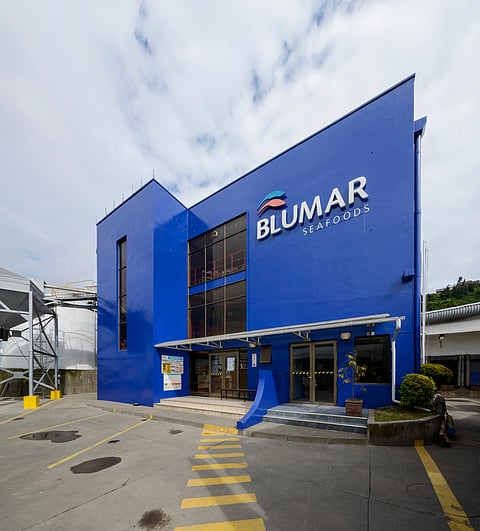

A court in the Chilean region of Aysén has convicted Blumar in the first instance for providing the authorities with false information on the dates on which it carried out a pharmacological treatment on one of its farming sites. The Chilean National Fisheries and Aquaculture Service (Sernapesca in its Spanish acronym), the recipient of the adulterated information, has reported that, specifically, the salmon farming company falsified the dates on which the treatment was carried out at its 'Concheo 2' farming site.
The sentence condemns Blumar to pay a fine of 500 UTM (CLP 31,726,000 / EUR 33,502 / USD 35,737) and the suspension of a salmon production cycle. If the sentence becomes final, the company will be strictly prohibited from transferring any batch of juveniles at the affected farm for a certain period, preventing the company from carrying out production work on them.
According to Sernapesca, the salmon company provided false information regarding the execution of pharmacological treatment with hexaflumuron for caligus, a parasite that adheres to the skin, gills and fins of the fish and can cause various problems in salmon, such as skin irritation, gill damage, general weakening, stress and even death. In addition, among other things, caligidosis can cause stunted growth in parasitized fish.
The purpose of caligus dips is to control the parasitic load to ensure the animal welfare of the salmon. In Chile, it is mandatory that before these baths are performed, the companies previously inform Sernapesca, from where they are supervised remotely or in-person to ensure that they are carried out with the proper handling of the drug. Among other considerations established in the law, the Chilean National Fishing and Aquaculture Service controls that the appropriate drug is used and that it is done at the correct times and in the established concentrations.
As mentioned, in this case, the false information consisted of adulteration of the dates of the pharmacological treatment. "This constitutes the infraction of providing false information established in the final paragraph of article 113 of the General Law of Fisheries and Aquaculture," explained Jorge Padilla, Regional Director of Sernapesca in Aysén. This sentence is added to others registered in Chile, and more specifically in Aysén region, regarding the reporting of false data, although the most common is related to overproduction.
"In February 2020, we carried out an inspection of the 'Concheo 2' fish farming site in order to verify the sanitary status of the facility," continued the Director of Sernapesca in Aysén. "It was in this instance where we were able to verify, through the review of tickets and records, that there were no fish bathing operations on the date reported by the company, and instead, there were between November 27 and 28, 2019."
The National Fisheries and Aquaculture Service of Chile (Sernapesca) is a government entity under the Ministry of Economy, Development, and Tourism. With a territorial presence in all 16 regions of the country, its mission is to "contribute to the sustainability of the sector and the protection of hydrobiological resources and their environment through comprehensive oversight and sanitary management that influences sector behaviour, promoting compliance with regulations."
